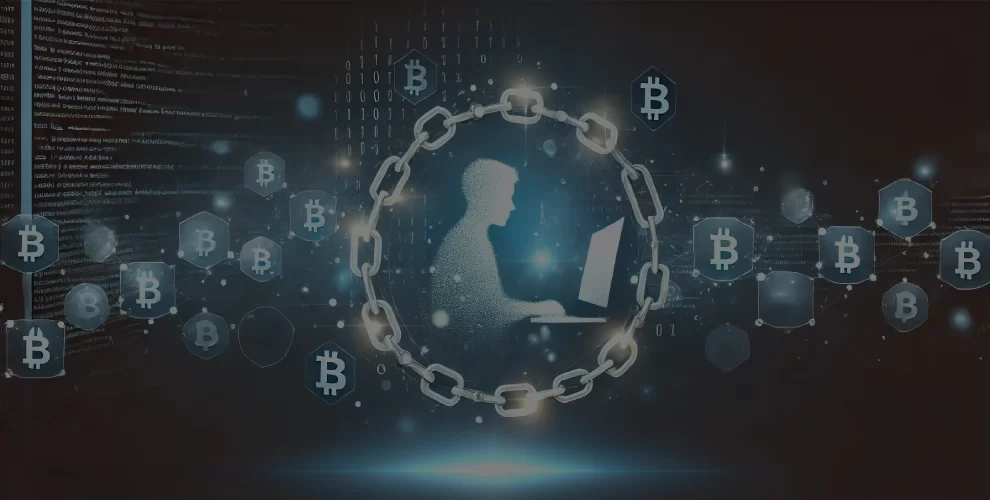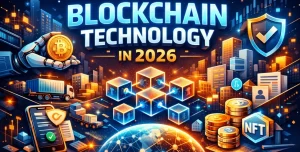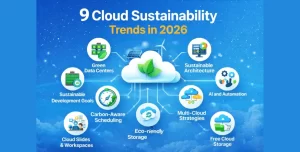
How to Become a Blockchain Developer: Skills and Career Path
Table of Contents
Introduction
Welcome to WikiGlitz! Blockchain technology is rapidly growing and offers immense career opportunities.
As businesses and industries continue to adopt blockchain, the demand for skilled blockchain developers is on the rise.
This guide will help you understand the skills required, the career path, and the resources available to become a successful blockchain developer.
Key Takeaways
- Essential Skills: Learn the critical skills needed to become a blockchain developer.
- Career Path: Understand the typical career progression and opportunities in the blockchain field.
- Learning Resources: Explore various resources to help you learn and develop blockchain skills.
What is Blockchain Development?
Definition and Scope of Blockchain Development
Blockchain development involves creating and maintaining blockchain systems and applications.
It includes designing protocols, developing smart contracts, and ensuring system security.
Key Components of Blockchain Technology
Blockchain consists of distributed ledger technology, consensus algorithms, cryptography, and smart contracts.
These components work together to ensure data integrity, transparency, and security.
Differences Between Blockchain and Traditional Software Development
Blockchain development requires knowledge of decentralized systems, consensus mechanisms, and cryptographic techniques, which differ from traditional centralized software development.
Essential Skills for Blockchain Developers
Programming Languages
To become a blockchain developer, proficiency in certain programming languages is essential:
- JavaScript: Essential for front-end development and some blockchain platforms.
- Python: Used for scripting and blockchain development.
Understanding of Blockchain Platforms
Familiarity with various blockchain platforms is crucial:
- Ethereum: Popular for smart contracts and decentralized applications (dApps).
- Hyperledger: Used in enterprise blockchain solutions.
Cryptography
Knowledge of cryptographic algorithms and techniques is crucial for securing blockchain systems. Understanding hash functions, digital signatures, and public-key cryptography is vital.
Smart Contracts
Developing, testing, and deploying smart contracts is a core skill for blockchain developers. These self-executing contracts facilitate, verify, and enforce agreements automatically.
Data Structures and Algorithms
Understanding data structures like linked lists, hash tables, and Merkle trees is essential for blockchain development. Efficient algorithms for data processing and manipulation are also important.
Web Development
Skills in both front-end (HTML, CSS, JavaScript) and back-end (Node.js, Express.js) development are necessary for creating blockchain applications.
Networking
Understanding peer-to-peer networks and protocols is vital for blockchain communication. Knowledge of TCP/IP, HTTP, and WebSocket protocols is beneficial.
Educational Pathways
Formal Education
Pursuing formal education in computer science, software engineering, or related fields provides a strong foundation. Many universities now offer courses focused on blockchain technology.
Online Courses and Tutorials
Online platforms like Coursera, Udacity, and edX offer comprehensive blockchain courses. Specialized blockchain learning platforms like Blockchain Council and Ivan on Tech Academy are also valuable resources.
Bootcamps and Workshops
Intensive bootcamps and workshops provide hands-on experience and practical knowledge. Programs like ConsenSys Academy and B9lab offer immersive learning experiences.
Gaining Practical Experience
Building Projects and Contributing to Open Source
Developing your own blockchain projects and contributing to open-source projects on platforms like GitHub can showcase your skills and provide valuable experience.
Internships and Entry-Level Positions
Applying for internships at blockchain startups and established companies allows you to gain practical experience and industry exposure.
Entry-level positions such as Junior Developer or Blockchain Intern are great starting points.
Networking with Professionals
Join blockchain communities and attend meetups, conferences, and hackathons. Connect with professionals on LinkedIn and other social media platforms to build your network and learn from industry experts.
Career Path and Opportunities
Entry-Level Roles
Junior Developer:
As a Junior Developer, you’ll assist in blockchain development tasks, learning from senior developers and gaining hands-on experience.
Blockchain Intern:
Internships offer valuable exposure to real-world blockchain projects, providing practical experience and insights into the industry.
Mid-Level Roles
Blockchain Developer:
As a Blockchain Developer, you’ll develop and maintain blockchain applications and systems, ensuring their functionality and security.
Smart Contract Developer:
Specializing as a Smart Contract Developer involves writing and deploying smart contracts, which are essential for automating blockchain transactions.
Senior-Level Roles
Blockchain Architect:
A Blockchain Architect designs blockchain solutions and leads development teams, ensuring the architecture meets business and technical requirements.
Blockchain Consultant:
As a Blockchain Consultant, you’ll provide expert advice and solutions to businesses looking to implement blockchain technology, helping them navigate technical and strategic challenges.
Specialized Roles
Cryptography Engineer:
Cryptography Engineers focus on securing blockchain systems using advanced cryptographic techniques, ensuring data integrity and privacy.
Decentralized Application (dApp) Developer:
dApp Developers create applications that run on blockchain platforms, leveraging smart contracts and decentralized protocols.
Certifications and Further Learning
Popular Blockchain Certifications
Certified Blockchain Developer (CBD):
Offered by the Blockchain Council, this certification validates your skills in blockchain development.
Certified Blockchain Professional (CBP):
Provided by the EC-Council, the CBP certification covers various aspects of blockchain technology and its applications.
Continuous Learning and Staying Updated
Follow blockchain news, read blogs, listen to podcasts, and participate in forums to stay informed.
Joining Professional Organizations and Communities
Join organizations like the Blockchain Association and the Enterprise Ethereum Alliance to connect with professionals and stay engaged with the community. Participate in online communities like Reddit’s r/blockchain and Stack Exchange for discussions and insights.
Challenges and How to Overcome Them
Staying Updated with Rapid Technological Changes
Blockchain technology evolves rapidly, so it’s essential to continuously learn and adapt. Follow industry leaders, participate in webinars, and take advanced courses to stay current.
Overcoming Initial Learning Curve
Start with foundational knowledge and gradually move to advanced topics. Practice regularly and build projects to reinforce your learning.
Navigating the Competitive Job Market
The blockchain job market is competitive. Network with professionals, seek mentorship opportunities, and stay persistent in your job search.
Future of Blockchain Development
Emerging Trends in Blockchain Technology
- Increased Adoption: More industries are adopting blockchain technology for its benefits in security, transparency, and efficiency.
- Growth of DeFi and NFTs: Decentralized finance (DeFi) and non-fungible tokens (NFTs) are gaining popularity and driving innovation in the blockchain space.
Potential Advancements and Their Impact on Development
- Scalability Solutions: Developments in scalability solutions like sharding and layer 2 protocols will improve blockchain performance.
- Integration with Emerging Technologies: Integration with AI, IoT, and other emerging technologies will expand blockchain’s applications and capabilities.
Predictions for Blockchain Developer Roles in the Next Decade
- Higher Demand: The demand for blockchain developers will continue to grow as technology becomes mainstream.
- New Specializations: New roles and specializations will emerge in the blockchain ecosystem, offering diverse career opportunities.
Conclusion
In conclusion, becoming a blockchain developer offers exciting career opportunities.
By acquiring the necessary skills, gaining practical experience, and staying updated with industry trends, you can embark on a successful blockchain development career.
WikiGlitz is here to support you on this journey with valuable insights and resources.
FAQs
What programming languages are essential for blockchain development?
Solidity, JavaScript, and Python are key languages for blockchain development.
How long does it take to become a blockchain developer?
It varies, but with dedicated learning, it can take around 6 months to 2 years.
Are there any certifications for blockchain developers?
Yes, certifications like Certified Blockchain Developer (CBD) and Certified Blockchain Professional (CBP) are popular.
What are the common challenges faced by blockchain developers?
Staying updated with rapid technological changes and navigating a competitive job market are common challenges.
What is the future of blockchain development?
The future looks promising with increased demand for blockchain developers and the integration of blockchain with other technologies.
Want to keep up with our blog?
Our most valuable tips right inside your inbox, once per month.
Error: Contact form not found.
WikiGlitz Team
Welcome to WikiGlitz, your ultimate destination for tech insights and innovation. Our expert team is dedicated to delivering free resources and professional advice on various technology topics, including Artificial Intelligence, Cyber Security, Cloud Computing, and more. We strive to empower our readers with up-to-date information and practical guidance, ensuring you stay ahead in the rapidly evolving tech landscape. At WikiGlitz, we are passionate about making complex technology accessible to everyone. Our team of seasoned experts curates content that is both informative and engaging, helping you understand and leverage the latest tech trends. Whether you're a tech enthusiast or a professional, WikiGlitz is your go-to source for reliable, expert-driven content. Join us on this journey to explore and embrace the future of technology.





